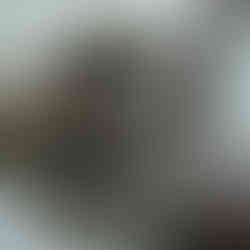Self Care
- Shaeron
- Feb 17, 2021
- 3 min read
“Love bears all things, believes all things, hopes all things, endures all things” 1 Corinthians 13
Take a look at the first image. This is one of the sculptures that I mentioned in last week’s blog by Louise Bourgeous. What does it convey to you? Care? Compassion maybe?
When thinking about survival for a previous blog, I came across an article about Darwin’s theory of evolution. The writer Christopher Kukk points out that the term ‘survival of the fittest’ is a misnomer and was never used by Darwin. He writes “Darwin was very clear about the weakness of the survival-of-the-fittest argument and the strength of his “sympathy hypothesis” when he wrote: “Those communities which included the greatest number of the most sympathetic members would flourish best and rear the greatest number of offspring.” Darwin goes so far in his compassion argument as to tie the success of human evolution (and even “lower animals”) to the evolution of compassion. He writes that as the human race evolved from “small tribes” into large civilizations, concern about the well-being of others extended to include not just strangers but “all sentient beings.” He even calls compassion “the almost ever-present instinct” when a fellow human witnesses the suffering of another. In other words, Darwin believed that compassion was a natural instinct that we all share. The bumper-sticker way of teaching and labelling Darwin’s ideas as exclusively focused on the “survival of the fittest” is not only misleading; it completely misses his idea that humanity’s success hinges on its level of compassion or sympathy.”
In a recent zoom meeting to plan a church service, we talked about the fact that all of us, even though we are people with resources of faith and material security, are finding life challenging at the moment. We realised that we were putting huge pressures on ourselves to perform, to keep things going. And so, we decided to be kind to ourselves, to back off this drive to achieve. We changed our plans towards simplicity, and something that nurtures us as well as those we serve. It felt somewhat indulgent but actually perhaps is just what we need at the moment. And I couldn’t help thinking, if we are struggling, how much more are those for whom the next meal or heating the house or staying safe are a huge issue? Recent heavy snow fall has also reminded me of ‘snow days’ when in pre-pandemic days we were given permission by the weather to give up on all our plans, our work and to just be in the moment.
Maybe we need to allow ourselves to hibernate a bit, watch TV, read a book, eat chips, cuddle up in a blanket, and love ourselves? Or if we prefer, go for a walk in the snowy woods, or imagine that we are? I have included a painting by Shirley Hudson, who I work with, as inspiration... check out her work at https://www.niddart.org.uk/shirley-hudson/.
Maybe we need to let go of our agendas or plans and cosy up with our inner selves, feed our souls in whichever way best works for us? Maybe we need to practice compassion for ourselves so that we can share that love with those around us? Mary Oliver says it so much better than I can in her poem Wild Geese (extract below):
You do not have to be good.
You do not have to walk on your knees
for a hundred miles through the desert repenting.
You only have to let the soft animal of your body
love what it loves.
Take time to look at the pictures and consider these questions:
- How can you survive with compassion?
- What agendas do you need to let go of?
- How can you love yourself?
Meditative Action:
You will need a piece of paper and a pencil or pen
- Write a list of everything you have to do
- Write a list of everything you would like to do
- Write a list of everything you can do to love and care for yourself
This meditation is commissioned by Leeds Methodist Mission



